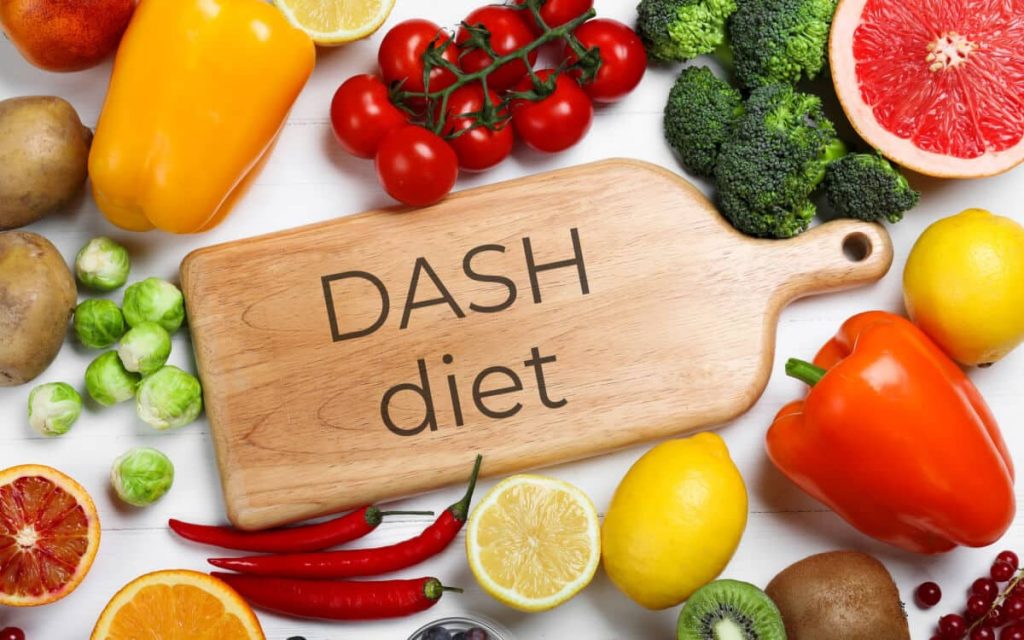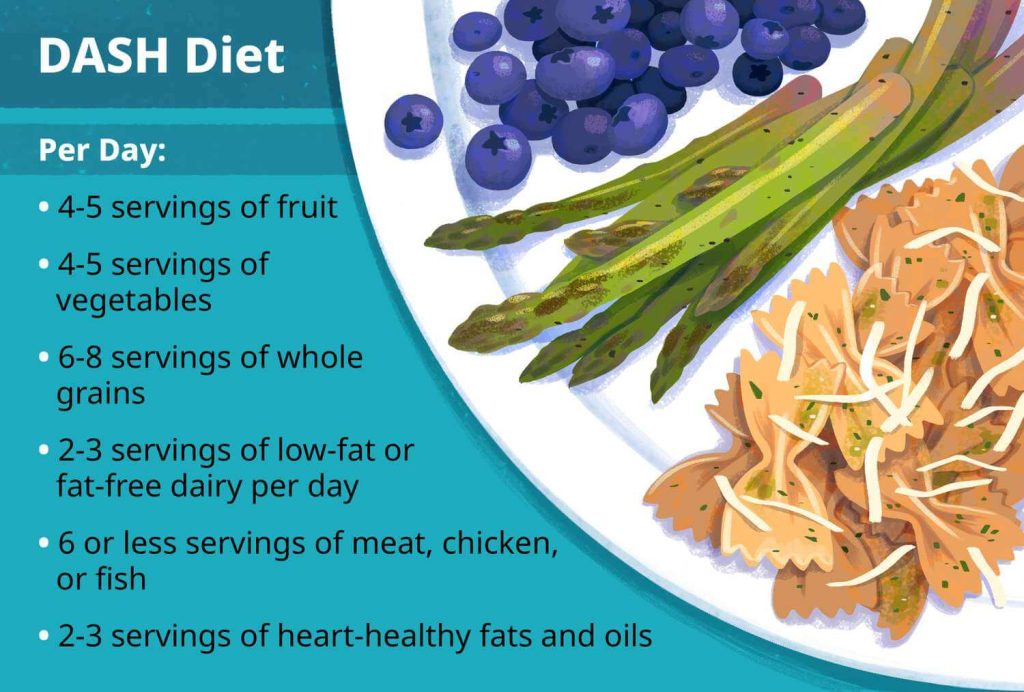
The DASH (Dietary Approaches to Stop Hypertension) diet isn’t just about shedding pounds; it’s a well-researched eating plan designed to lower blood pressure and promote heart health. Its emphasis on whole, nutrient-rich foods has made it a popular choice among individuals seeking a balanced and effective approach to improving cardiovascular wellness.
1. Understanding the DASH Diet’s Impact:
Health Benefits:
The DASH diet’s emphasis on nutrient-rich foods, such as fruits, vegetables, whole grains, and lean proteins, aligns with dietary guidelines that support overall health. Research suggests that following the DASH diet consistently can help lower high blood pressure and reduce the risk of heart disease. The diet’s focus on potassium, magnesium, and calcium-rich foods also contributes to these health benefits.
Nutrient Breakdown:
It’s essential to delve deeper into the nutrients emphasized in the DASH diet. For instance, potassium-rich foods, such as bananas, spinach, and beans, play a significant role in regulating blood pressure. Likewise, foods high in magnesium, like nuts, seeds, and leafy greens, contribute to heart health and muscle function. The diet’s promotion of calcium from low-fat dairy helps maintain strong bones and muscles.
Sodium Reduction:
One of the key aspects of the DASH diet is its recommendation to reduce sodium intake. The diet emphasizes a decrease in high-sodium processed foods and encourages the use of herbs, spices, and other flavor enhancers to reduce reliance on salt. This reduction in sodium can aid in managing blood pressure levels.
Meal Planning and Sustainability:
Effective implementation of the DASH diet involves strategic meal planning. It’s about finding creative ways to incorporate the recommended food groups into meals while balancing portion sizes. Sustainability is a crucial factor; individuals need to develop strategies for maintaining the diet in the long term, such as seeking diverse recipes and adapting the diet to personal tastes and preferences.
Success Factors and Challenges:
Success with the DASH diet often depends on commitment and lifestyle changes. Overcoming challenges such as adjusting to new eating habits, grocery shopping for fresh produce, and meal preparation can influence adherence to the diet. However, understanding its health benefits and gradual incorporation can aid in overcoming these hurdles.
Consultation and Support:
Individuals considering the DASH diet should consult healthcare professionals or nutritionists. These experts can provide personalized guidance, help set realistic goals, and offer support throughout the dietary transition.

2. Key Principles of the DASH Diet:
1. Abundant Fruits and Vegetables:
- Recommends generous portions of fruits and vegetables, high in fiber, vitamins, and minerals.
- Encourages variety in color and types for diverse nutrient intake.
2. Lean Protein and Low-Fat Dairy:
- Prioritizes lean protein sources like poultry, fish, beans, and nuts.
- Emphasizes low-fat or fat-free dairy for calcium and protein.
3. Whole Grains and Healthy Fats:
- Advocates for whole grains rich in fiber and essential nutrients.
- Suggests healthy fats such as those found in olive oil, nuts, and avocados.

3. Transformational Focus of the DASH Diet:
Lowering Blood Pressure:
- Research indicates its effectiveness in reducing high blood pressure due to its nutrient-rich composition.
- Promotes a decrease in sodium intake, contributing to blood pressure regulation.
Heart Health Benefits:
- Supports heart health by reducing the risk of heart disease and stroke.
- Aids in improving overall cardiovascular wellness through its nutrient-dense food choices.
Practical Implementation:
Understanding Portion Sizes:
- Offers guidance on appropriate portion sizes for different food groups.
- Encourages balanced meal planning and portion control for optimal results.
Gradual Adaptation:
- Suggests gradual implementation to allow for a smoother transition and adaptation to the dietary changes.

4. Pros and Cons of the DASH Diet:
Pros:
- Emphasis on whole, nutritious foods beneficial for overall health.
- Proven to lower blood pressure and reduce the risk of heart disease.
Cons:
- Requires adjustment in eating habits and may be challenging for some initially.
- Might involve more meal preparation due to the emphasis on fresh foods.

Conclusion:
The DASH diet serves as an evidence-based, practical eating plan with a primary focus on enhancing heart health and managing blood pressure. Its emphasis on nutrient-dense foods, balanced approach, and proven benefits in improving cardiovascular wellness make it a compelling option for individuals seeking a sustainable and health-focused diet.
Source: Admin compiled from the Internet





















